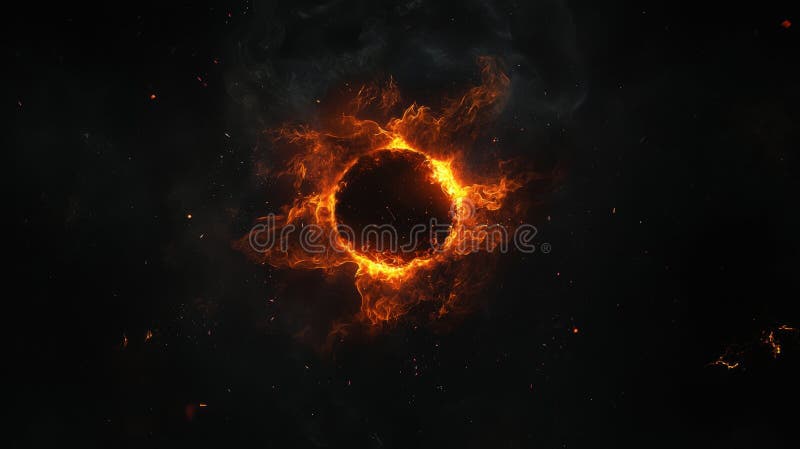Get ready to mark your calendars and witness the celestial spectacle of a lifetime! The highly anticipated Eclipse Schedule 2026 has been unveiled, offering astronomy enthusiasts a comprehensive guide to the upcoming solar and lunar eclipses. As we delve into the intricacies of these cosmic phenomena, we embark on a journey of discovery and wonder. Join us as we explore the dates, locations, and unique characteristics of each eclipse, unraveling the mysteries of the universe one celestial event at a time. Prepare to be awestruck by the beauty and precision of nature’s cosmic ballet as we unlock the secrets of the Eclipse Schedule 2026.
If you're along the shaded path on the map, clear your schedule and grab your eclipse glasses! 😎 A total solar eclipse will be crossing over North America on April 8 and won't return until 2044.
More: https://t.co/YsWzJgd9aD pic.twitter.com/EffkTgemxb
— U.S. National Science Foundation (@NSF) March 21, 2024
Introduction to Eclipse Schedule 2026
As we eagerly anticipate the celestial events of 2026, the Eclipse Schedule 2026 promises to deliver captivating moments for skywatchers around the world. This year’s calendar is filled with an exciting lineup of solar and lunar eclipses that are sure to leave spectators in awe of the beauty and wonder of our universe.
Solar Eclipses
One of the highlights of the Eclipse Schedule 2026 is the series of solar eclipses that will occur throughout the year. These mesmerizing events occur when the Moon passes between the Sun and the Earth, casting a shadow on the Earth’s surface. Skygazers will have the opportunity to witness the beauty of a total solar eclipse in various parts of the world.
Additionally, partial solar eclipses will also be visible from different regions, offering spectators a chance to experience the magic of this celestial phenomenon.
Lunar Eclipses
The Eclipse Schedule 2026 also includes a lineup of lunar eclipses that will grace the night sky. During a lunar eclipse, the Earth comes between the Sun and the Moon, creating a mesmerizing display as the Moon passes through the Earth’s shadow. This celestial event provides a stunning visual spectacle for observers both near and far.
Whether it’s a partial or total lunar eclipse, each phase of the event offers a unique viewing experience that highlights the beauty and grandeur of the cosmic ballet happening above us.

Understanding the Significance of Eclipses
Eclipses hold a profound significance in astronomy and have captivated humanity for centuries. In 2026, the eclipse schedule is set to showcase both solar and lunar eclipses, offering a celestial spectacle for skywatchers worldwide. These cosmic events occur when the Earth, Moon, and Sun align in specific ways, casting shadows that awe-inspiring in their beauty and complexity. The 2026 eclipse schedule reveals a series of mesmerizing celestial dances that remind us of the vastness and wonder of the universe.
The Science Behind Eclipses
Eclipses occur due to the precise alignment of the Earth, Moon, and Sun. During a solar eclipse, the Moon passes between the Earth and the Sun, blocking the sunlight and casting a shadow on Earth. Conversely, a lunar eclipse happens when the Earth comes directly between the Sun and the Moon, causing the Earth’s shadow to fall on the Moon.
The Cultural and Historical Significance
Eclipses have played a crucial role in numerous cultures and societies throughout history. Ancient civilizations often associated eclipses with divine or ominous events, shaping myths and legends. By studying historical records and folklore related to eclipses, we gain insights into how these celestial phenomena have influenced human beliefs and perceptions of the cosmos.

Exploring the Astronomical Events in the Eclipse Schedule
As we delve into the eclipse schedule 2026, a myriad of celestial events await enthusiasts and stargazers. The year 2026 promises an array of captivating astronomical phenomena, including solar eclipses, lunar eclipses, and other celestial alignments.
Solar Eclipses
One of the most anticipated events in the 2026 eclipse schedule is the total solar eclipse expected to occur on April 20th, 2026. This rare phenomenon will be visible from certain regions, offering a spectacular visual treat to observers.
Lunar Eclipses
June 5th, 2026 will witness a penumbral lunar eclipse, where the Earth will partially block the Sun’s rays from reaching the Moon, creating a subtle shading effect on the lunar surface. This celestial event is a must-watch for astronomy enthusiasts.
Celestial Alignments
Aside from the eclipses, 2026 is also set to host several planetary alignments, meteor showers, and other celestial marvels. Keep an eye on the sky during key dates to witness these awe-inspiring events firsthand.
Preparation and Planning for the 2026 Eclipses
As we eagerly anticipate the celestial events of the eclipse schedule 2026, it is essential to prepare and plan ahead to make the most of these rare occurrences. The 2026 eclipses are set to captivate sky watchers around the world, offering unique opportunities to witness the wonders of our solar system.
Research and Location Selection
One crucial aspect of preparing for the 2026 eclipses is conducting thorough research on the upcoming events. Understanding the path of totality and the best viewing locations is key to experiencing the full impact of these natural phenomena. Whether you choose to travel to a remote destination or observe from your backyard, advance planning ensures you don’t miss out.
Gear and Equipment
Having the right gear and equipment is essential for witnessing and photographing the 2026 eclipses. From solar filters for telescopes to eclipse glasses for safe viewing, make sure you are well-equipped to enjoy the events safely. It’s also a good idea to practice using your equipment before the eclipses to avoid any last-minute issues.
Community Engagement and Events
Joining local astronomy clubs or online communities dedicated to eclipses can enhance your experience and provide valuable insights and tips. Keep an eye out for special events, workshops, and gatherings related to the 2026 eclipses to connect with fellow enthusiasts and share the excitement of these cosmic events.
Impact of Eclipses on Different Cultures and Beliefs
Eclipses have long been regarded as significant celestial events across various cultures and belief systems. They often carry both mystical and transformative meanings, influencing how different societies interpret their occurrence.
Ancient Civilizations
Ancient civilizations like the Mayans and Egyptians viewed eclipses as omens or messages from the gods, often associating them with impending changes or calamities.
Indigenous Traditions
In many indigenous cultures, eclipses are seen as powerful moments for spiritual introspection and connection with ancestors. They mark times for ceremonies and rituals to honor the Earth and the cosmos.
Modern Interpretations
Today, eclipses continue to captivate people worldwide, with scientific explanations coexisting alongside cultural and spiritual interpretations. Many still believe in the transformative energy eclipses bring.
Frequently Asked Questions
- What is the Eclipse Schedule for 2026?
- The Eclipse Schedule for 2026 reveals the dates and timings of upcoming solar and lunar eclipses that will occur throughout the year.
- How can I access the Eclipse Schedule for 2026?
- You can access the Eclipse Schedule for 2026 through various astronomy websites, apps, or through official astronomical organizations that publish such information.
- What can we expect from the Eclipse Schedule in 2026?
- The Eclipse Schedule for 2026 will provide details on partial eclipses, total eclipses, annular eclipses, and penumbral eclipses that will be visible from different parts of the world.
- Are there any special events related to eclipses in 2026?
- There may be specific astronomical events, gatherings, or observations organized around significant eclipses in 2026, which can provide unique viewing experiences for enthusiasts.
- How can I make the most of the Eclipse Schedule for 2026?
- To make the most of the Eclipse Schedule for 2026, consider planning ahead, determining the best viewing locations, using proper eye protection when observing solar eclipses, and staying informed about any updates or changes in the schedule.
Unlocking the Mysteries: Eclipse Schedule 2026 – Final Thoughts
As we conclude our exploration into the upcoming eclipse schedule for 2026, it is clear that celestial events continue to captivate and awe us. The detailed schedule revealed in our blog sheds light on the path of these awe-inspiring phenomena, guiding enthusiasts to witness these wonders of nature. From the rare hybrid eclipse to the breathtaking total solar eclipse, 2026 promises to be a year filled with celestial marvels. Remember to mark your calendars and prepare for these unforgettable moments that showcase the beauty and precision of our solar system. Let’s embrace the magic of the universe and make the most of these extraordinary opportunities!



